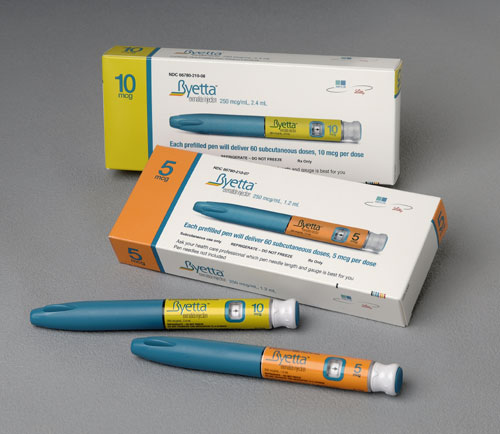Treatments for pancreatitis associated with Byetta (exenatide) usually involves hospitalization, fasting, and special nutrition to help reduce inflammation in the pancreas. Medications may include painkillers, antibiotics, digestive enzyme supplements, and more. Surgery may be necessary to remove diseased pancreatic tissue and drain fluids if there is severe damage or infection.
What You Can Do & How a Byetta Lawsuit Can Help
The Schmidt Firm, PLLC is currently accepting Byetta induced injury cases in all 50 states. If you or somebody you know was injured by Byetta, you should contact our lawyers immediately for a free case consultation. Please use the form below to contact our Defective Drug Litigation Group or call us toll-free 24 hours a day at (866) 920-0753.
Byetta Pancreatitis
According to the U.S. Food and Drug Administration (FDA), Byetta (exenatide) was associated with 30 cases of acute pancreatitis in 2007. Less than a year later, the FDA warned that an additional 6 cases of Byetta pancreatitis had been reported. Most of the patents required prolonged hospitalization, and 2 deaths were attributed to Byetta pancreatitis.
Acute pancreatitis is a life-threatening disease that occurs when the pancreas (a digestive gland located behind the stomach) becomes suddenly and severely inflamed. If the inflammation is not controlled, the pancreas can become extremely swollen. Bleeding may occur (hemorrhagic pancreatitis). Pancreatic tissue can also die and become infected (necrotizing pancreatitis).
Byetta Pancreatitis Treatment Information
Many cases of pancreatitis linked to Byetta have required extensive treatment, including hospitalization. This is because inflammation of the pancreas is usually controlled by fasting (not eating anything) so the pancreas does not need to produce digestive enzymes or metabolic hormones. Patients who cannot eat will be given intravenous fluids to provide nutrients and hydration.
Most cases of acute pancreatitis are mild and not life-threatening. However, in some cases, the inflammation can cause severe swelling of the pancreas, bleeding, tissue death, infection, and other life-threatening complications. In these cases, surgery may be necessary.
Pancreatitis and Surgical Procedures
Different types of surgical treatment may be necessary. When pancreatic necrosis (tissue death) occurs, surgery is almost always necessary to remove the tissue and prevent a life-threatening infection. If an infection occurs, surgeons may also need to install a catheter drainage system to aid in post-surgical removal of infected fluids from pseudocysts or abscesses.
Byetta Pancreatitis Drug Information
Patients who take Byetta and suffer from pancreatitis may require the following types of drug treatments, which may vary depending on the severity of the disease and individual circumstances:
- Pancreatic enzyme supplements (Lipram, Pancrease, Viokase)
- Insulin
- Intravenous fluids
- Pain medications
- Antibiotics
- And more
Do I have a Byetta Lawsuit for Pancreatitis?
The Schmidt Firm, PLLC is currently accepting Byetta induced injury cases in all 50 states. If you or somebody you know was injured by Byetta, you should contact our lawyers immediately for a free case consultation. Please use the form below to contact our Defective Drug Litigation Group or call us toll-free 24 hours a day at (866) 920-0753.
Attention Lawyers: We consider a referral from another law firm to be one of the greatest compliments. If your firm is interested in referring us a case or for us to send you a list of previous award judgments and/or average referral fees, please visit the Lawyer Referral section of our website.


 The Schmidt Firm, PLLC has been recognized as one of the nation’s leading plaintiffs' law firms and handles cases in all 50 states. We are very proud of our legal achievements, but equally self-respecting of our firm's reputation for providing personal attention to each and every client we represent.
The Schmidt Firm, PLLC has been recognized as one of the nation’s leading plaintiffs' law firms and handles cases in all 50 states. We are very proud of our legal achievements, but equally self-respecting of our firm's reputation for providing personal attention to each and every client we represent.

